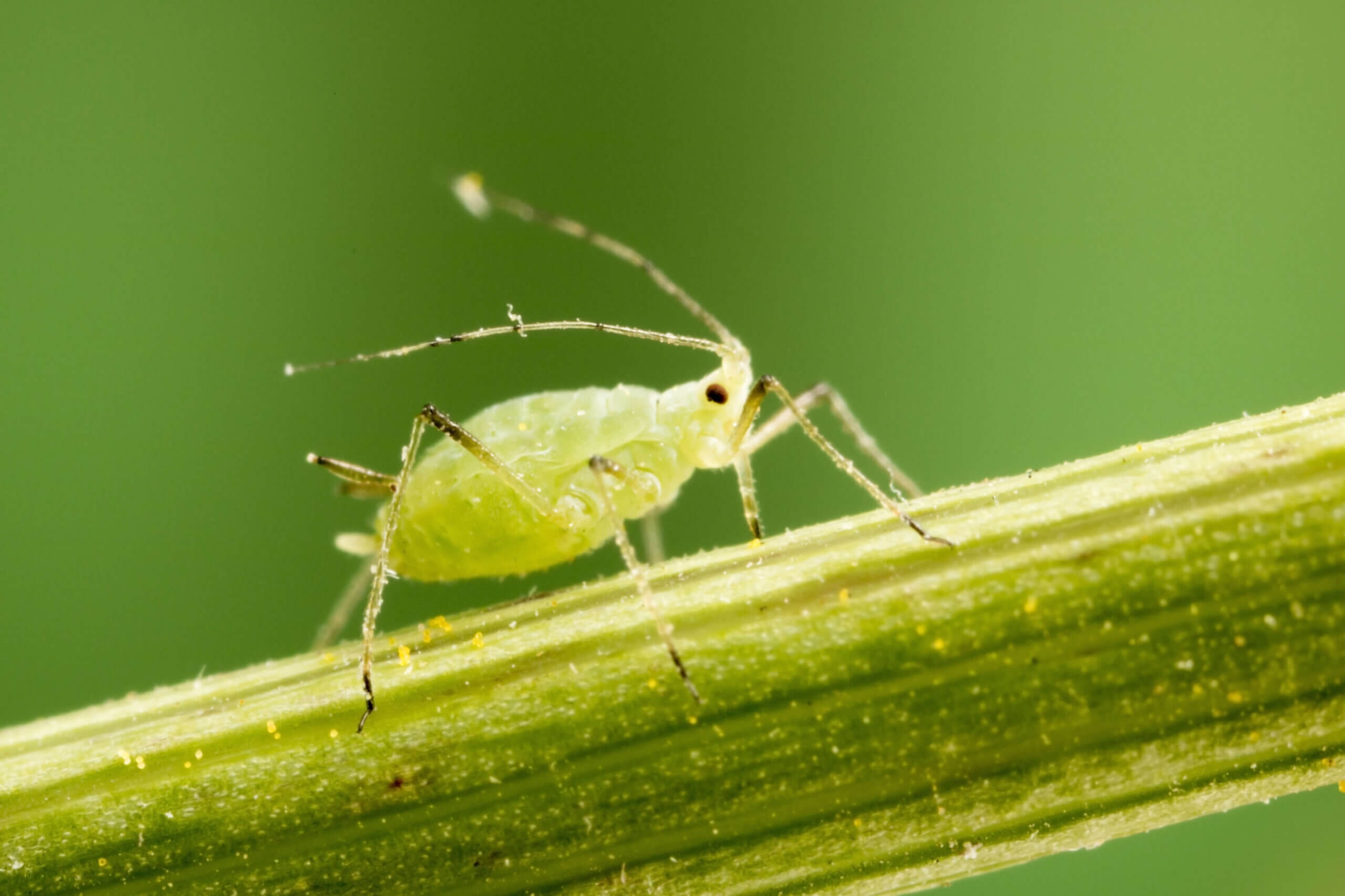Aphids are found throughout Arizona, and in most other agricultural zones. These hardy insects are tiny, but they can inflict a lot of damage on your landscape and garden. Since aphids are rapid reproducers, and may give birth to multiple generations in the span of one season, it’s important to get an infestation under control quickly. If you notice the following signs of an infestation, call a landscape company right away.
Identification of Aphids
Adult aphids are less than a quarter inch in length. You may need a magnifying glass to see them clearly. They may be green, yellow, black, brown, white, or even pink, depending on the specific species. Two of their hallmark characteristics are a pair of long antennae extending over the body and two shorter tubes extending out from the hindquarters. Nymphs and adults have a similar appearance. Normally, aphids feed in large groups.
Inspection of Plants
Even if you can’t detect the aphids themselves, you may be able to identify them by the damage they leave behind. Aphids are particularly fond of new plant growth and succulents. Some species of aphids feed on specific plants. For example, there are bean aphids, melon aphids, and potato aphids. If aphids have been feeding on your plants, you might see these signs:
- Leaves that are yellowing, curling, or misshapen
- Distorted or deformed flowers or fruit
- Roots or leaves that form galls (abnormal lumps)
If you suspect an aphid infestation, touch the leaves and stems. Aphids often leave behind a sticky substance, called honeydew.
Identification of Secondary Problems
As the aphids damage the plants, they invite secondary infestations to attack the landscape. For example, the honeydew left behind may promote the growth of sooty mold. This fungal infestation can turn leaves black. The honeydew can also attract other insects, including ants. Additionally, aphids may spread viruses from plant to plant.
Horticulture Unlimited, Inc. practices integrated pest management to reduce negative environmental effects, and to support plant health and vitality. Our pest management experts can reduce the need for pesticide application. Call our office in Tucson at (520) 321-4678.

